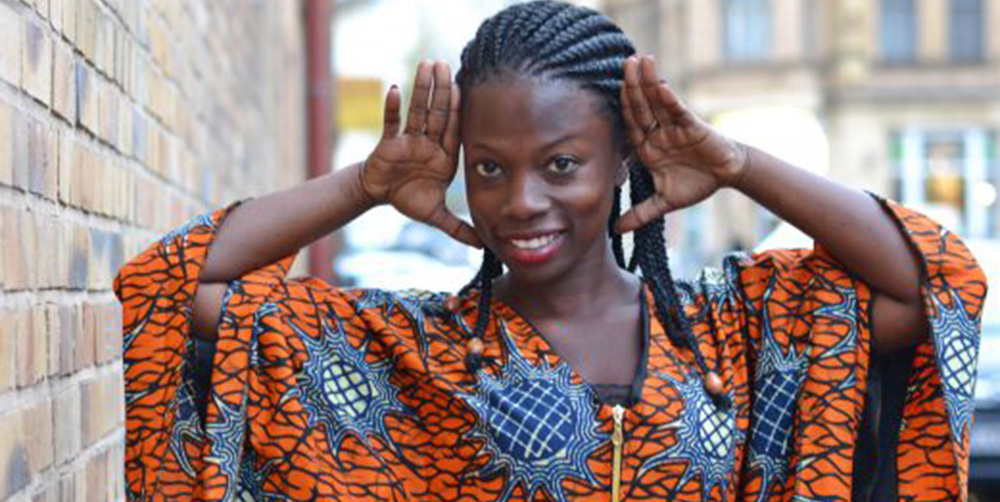Having lost both her disabled parents at the tender age of 6, Namujju Juliet was left in the care of her seamstress grandmother who struggled to provide for her. This means as a child, she had to forego ‘’trivialities’’ like playing dolls but Juliet did not let this get into her way of having fun. She got creative. Juliet started stitching her own dolls and designing their clothes from her grandmother’s discarded clothes pieces.
“I had the opportunity to take her remaining pieces and sew
flowers and dresses for my dolls out of them. I was able to see that waste could be something very useful.“

Due to a lack of funds to support her university education, the 22-year-old decided to enroll for a short course in Fashion and Design after completing her High School. She then joined Social Innovation Academy that educates disadvantaged youth to become job creators and social entrepreneurs with the ability to turn challenges into solutions. It was here that she came up with her business idea.
Kimuli Fashionability is a designer fashion house in Mpigi District, that employs disabled people who upcycle waste products mostly plastic into African fashion clothes for wear.
“We get every plastic waste we can find like sugar sacks, empty milk packets, rice sacks and cement sacks. Collecting them from rubbish pits, bringing them with us and washing them. After that, we sew them together with our African fabrics.“

Juliet Namujju says she was inspired to venture into this business for three reasons; the need to offer solution to Uganda’s garbage and waste management problems, empower disabled people through meaningful employment following her parents’ discrimination and a deep rooted love for fashion.
“Since I was young I loved working with people with disabilities which made me
start building my brand and including people with disabilities. They lack skills, they are vulnerable and they are being discriminated. Giving them an opportunity, a chance, to teach them the skills they need for fashion and design will make a good impact on them, their community as well as the society we live in.“
Since its inception in 2015, Kimuli Fashionability has showcased its designs in countries like Germany, Poland, among others, with customers in different parts of the world. It has also offered employment to over 30 Persons with Disabilities.

Juliet was nominated in the Africa Women Innovation and Entrepreneurship Forum annual AWIEF Awards 2018 in the category of Young Entrepreneur but lost to South Africa’s Nomso Faith Kana. And in December 2018, she attended the Goalkeepers’ event in South Africa, curtesy of Bill And Melinda Gates Foundation.

Juliet credits her success and ability to overcome challenges as an entrepreneur to;
1. Mentorship: “I come from an organization that teaches us not to give up because of bigger challenges but to look at big things and slowly accomplishes it. „Social Innovation Academy“(SINA) in Uganda accompanies young people on their way to become an entrepreneur.“
2. Examplery leadership: “You can not take yourself to be a higher person because you have to touch the waste and wash it. As the fashion designer has to be an example to your workers and even to other members of your company.“
3. Honesty with clients: “I will not hesitate or beat around the bush if the design will not look good on you.“
4. Authenticity: “I and my team work very tight together in the creative process of designing our clothes without copying from other fashion designers.“
Sources: Bildkorrekturen and Stitcher

